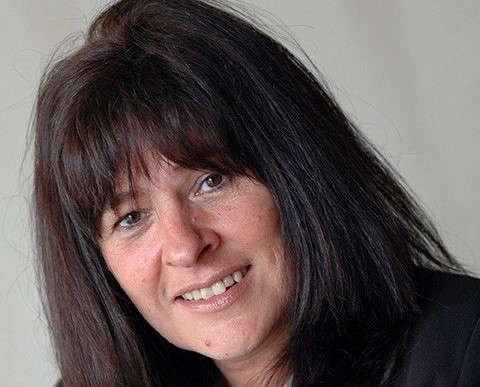
Lancashire businesses may have to make staff cuts and put up prices as a result of some of the measures announced in the budget, a group representing many of them has warned.
The North and Western Lancashire Chamber of Commerce was responding to the increase in employer national insurance contributions and the forthcoming rise in the national minimum wage, which will go up by 6.7 percent to £12.21 an hour.
However, the Blackpool-based Federation of Small Businesses (FSB) praised Chancellor Rachel Reeves for what it said was the way she had protected many of the smallest firms from some of the “tough” policies she announced – and for prioritising their needs over those of “big corporates”.
Babs Murphy, the Chamber’s chief executive said firms across the county were now facing “significant challenges in managing their day-to-day operations”.
“These added employment obligations will likely force companies to align with financial performance or raise the prices of their products and services, ultimately impacting their growth objectives.
“Larger businesses may have to make significant adjustments regarding pricing, staffing, and operational strategies, leading to an uncertain transition period as the market adapts to these changes.
“Businesses were braced for a doom-and-gloom budget and while many will see their outgoings increase – with little wriggle room for investment – there have been chinks of light for the smaller businesses.
“We welcome the changes in business rates which will affect a number of businesses across the county, but many will need more clarity on how these changes will affect their other operational outgoings.
“A further freeze in fuel duty will also be welcomed, especially by the haulage sector which keeps businesses across the county moving. The hospitality and leisure industry will welcome lower tax rates.
“This budget, however, does very little to increase growth and investment for the thousands of small and medium-sized enterprises which are the backbone of the Lancashire business community,” Ms Murphy added.
However, the FSB – a national organisation which was established in Lancashire 50 years ago – struck a generally optimistic tone in its assessment of Rachel Reeves’ first budget.
Policy chair Tina McKenzie said: “Increasing the employment allowance for small businesses by a record amount is a very welcome move and we’re pleased the Chancellor has heard us loud and clear. More than doubling it, from £5,000 to £10,500, will shield the smallest employers from the jobs tax – and therefore is a pro-jobs prioritisation in a tough budget.
“The decision to protect small businesses from an inflationary hike in business rates – by freezing the small business multiplier – will help small firms with premises across all sectors. Meanwhile, extending business rates relief, albeit at a lower level, for small firms in retail, hospitality and leisure will mitigate a potential cliff-edge tax hike for those in some of the toughest sectors.
“The true test of today’s budget will be whether small businesses can grow and end the economic stagnation the UK has been stuck in.”
However, Ms. McKenzie acknowledged that some small and medium-sized enterprises (SMEs) will “struggle with the rises in employer national insurance on top of the large costs from the government’s employment law plans”.
She added: “We’ve been very clear in our warning of the difficulty SMEs will be confronted with in meeting all of these changes at once – and the potential impact on jobs, wages and prices.
“The budget documents include plans for a small business strategy command paper, which is a welcome signal that ministers appreciate the central role that small businesses play in driving growth and we look forward to working with the government closely on that.
“Building a business involves a significant element of risk and personal, as well as financial, investment. But for the economy to grow, we need more people to be incentivised to take that leap and, in turn, create jobs, opportunities and prosperity in all communities across the country.
“The right decision has been taken to retain entrepreneurs’ relief up to £1m, which is something we have campaigned hard for. Although the level of relief will gradually reduce over time, resulting in more tax being paid in the future on business sales, we’re pleased to see a differential has been kept.
“Against a challenging backdrop, today’s budget shows a clear direction in business policy now for the whole of this Parliament to target support at small businesses, rather than big corporates – prioritising everyday entrepreneurs working in local communities in all parts of the country,” Ms. McKenzie said.
The increase in the national minimum wage – worth £1,400 a year to a full-time worker – came after the government asked the Low Pay Commission to take into account the cost of living when recommending the level at which the lowest pay rate should be set.



 Chorley stem cell donor who saved a stranger’s life urges others to join the register
Chorley stem cell donor who saved a stranger’s life urges others to join the register
 Motorcyclist dies after collision in Chorley
Motorcyclist dies after collision in Chorley
 Man jailed for attempting to kill police officer at Preston station
Man jailed for attempting to kill police officer at Preston station
 Intensive day of action tackles community issues in Preston City Centre
Intensive day of action tackles community issues in Preston City Centre
 Get your green fingers on early bird tickets for Chorley Flower Show
Get your green fingers on early bird tickets for Chorley Flower Show
 Cricket pitch funding approved
Cricket pitch funding approved
 Concern for missing Preston man also wanted on recall to prison
Concern for missing Preston man also wanted on recall to prison
 Rebrand for 19,000 home social landlord includes controversial name change
Rebrand for 19,000 home social landlord includes controversial name change




